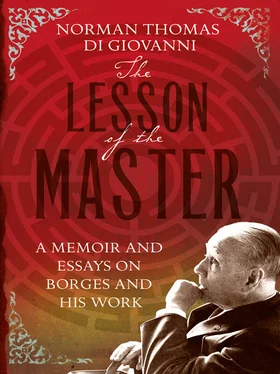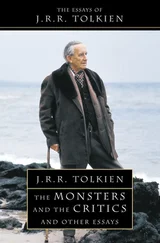Supposing that something were truly unforgettable, thinks Borges; and he imagines the character and circumstances of Funes, a young Uruguayan who, as the result of a childhood accident, is afflicted with total recall, so that he possesses ‘more memories than the rest of mankind since the world began’. Supposing the past could be undone, muses Borges; and he constructs the masterful tale ‘The Other Death’, in which, forty years after committing a cowardly act in battle, a man dies the kind of death he would have preferred to die. What if, asks Borges, all expression, all language, all poetry could be reduced to a single line or even a single word; and he dreams up two of his most genial tales, ‘The Mirror and the Mask’ and ‘Undr’, in which an Irish bard and a Norse skald, respectively, set out in quest of the unfathomable essence of absolute poetry. Or what if, Borges posits, there were a book with an infinite number of pages; and he invents the Book of Sand, a volume in which ‘None is the first page, none the last.’
Borges formally commented on a number of his own stories. Twenty of them, in fact. These remarks, written directly in English, appear in a long-out-of-print volume called The Aleph and Other Stories 1933–1969. One has only to compare what he said there with what the exegetes have concocted to see how simple and direct Borges was, how far from the inhuman, slightly monstrous literary intelligence he was too frequently made out to be. Having worked with him for a number of years, having lived in Buenos Aires, where I was immersed in his world, having translated ten or so of his books and studied his writing for decades, I find the line from Byron almost magical for the ease with which it lets us into Borges’s mind. In the teeth of the mystification, complication, and misconception that the bulk of Borges’s commentators have strewn in our path, I view him as an exacting craftsman and as a pure and rather old-fashioned teller of tales – one whose starting point is not ‘Once upon a time …’ but rather ‘Let us suppose …’ or ‘What if …’
Some years ago, I commented on a book about this Borges, the story-teller. The volume under scrutiny, I said at the time, was perhaps the the best-written book on Borges to date in English. It managed to be scholarly without too great a reek of the academy. Borges’s stories, its author accurately pointed out,
are exemplary, not morally exemplary like the stories once written by Cervantes and others to teach improving lessons in human conduct, but technically exemplary in that they dramatise the rules and procedures of the narrative genre to which they belong….
The book correctly went on to characterize Borges’s fiction as ‘think pieces’, tales about ideas rather than people. The volume contained several chapters of other valuable insights and observations, including one which comprised a perfect discussion of the philosophical basis of so much of Borges’s work.
Yet oddly the book was peppered with misconceptions and strange little inaccuracies that turned some of its arguments comic. At one point, to illustrate a particular thesis, the volume cited a four-page tale from Borges’s first fictional work, A Universal History of Infamy, claiming that the piece was ‘loosely derived from the Arabic’ and that it was ‘one of Borges’s earliest inventions’. But the story was not by Borges at all. While indeed a similar tale figures in an Arabian collection, the one borrowed by Borges here was an almost straight transcription from the medieval text of the Spanish infante Don Juan Manuel. As it turned out, Borges deliberately chose the story and put it into his own collection for the simple reason that as narrative – as the kind of imaginative narrative he was to make his hallmark – it was a better piece of work than he was then, in the early 1930s, capable of writing. That, it seems to me, is the point that should have been made.
Elsewhere in the same study, discussing another of the tales from A Universal History of Infamy, the author got a more serious detail wrong. Citing a lead given him by an American Borges commentator, Ronald Christ, the author states that Borges’s version of the Tichborne claimant story was derived from an account of it in Philip Gosse’s History of Piracy. It is difficult to comprehend what place the story of the great swindle of Victorian times, involving a noted old Catholic family and the supposed return of their long-lost son, could possibly have in a survey of buccaneers. I once pointed out to Christ that his interpretation had been based not on a reading of Gosse but on an error committed by an Argentine typesetter who, in a reprint of the Historia universal de la infamia, misplaced the linotype slug that accurately credits the source of the Tichborne story to the pages of the Encyclopædia Britannica. Christ later acknowledged this in print and recounted how a simple printer’s error had led to what he called, poking fun at himself, ‘inevitable interpretive fictions’.
Some forty pages after first speaking of Gosse in the volume I reviewed, its author made the following full-blown reference to this same story, perpetrating yet another ‘inevitable interpretative fiction’:
As readers of Borges’ story we might … compare his Tichborne claimant with the original…. By comparison with Gosse, Borges’ story is the most blatant of fictions and all the more interesting for being so. He no more wants to imitate Gosse than Bogle [a character in the story] wants to imitate Roger Tichborne. On the other hand, it is Gosse’s story that we have to see as the ‘reality’ from which Borges’ translation departs…. The two versions vary in their circumstances, Borges having invented, for his purposes, quite different circumstances from those invented, or selected, by Philip Gosse.
While I was engaged in the translation of A Universal History of Infamy back in 1971, Borges made me a gift of several of the books he had used as source material when writing his tales. One of them was the Gosse volume, which had been utilized – quite logically – for a story about Chinese pirates. There is no connection or reference whatever in Gosse to the Tichborne affair, therefore I cannot even begin to speculate on what led the commentator to become so carried away by a text that does not exist. But then how typical of Borges, the sleight-of-hand master of bogus attributions and of texts that go missing, to subsume his interpreters in this way.
The story does not end there. In his notes to a 1998 compendium of Borges’s stories, Andrew Hurley – twenty-six years after Christ’s confession of error – could still claim in a statement that is a model of unclarity and equivocation that Gosse’s history is the source given by Borges, but ‘In my view, this attribution is the result of an initial error seized upon by Borges for another of his “plays with sources”; as he subsequently admitted freely, and as many critics have noted, much of this story comes from the Encyclopædia Britannica, Eleventh Edition….’ So much for Hurley’s scholarship and his insight into Borges’s mind. So much for the acumen of the Borges estate in specifying that Hurley’s compendium be based on a substandard edition of Borges’s works. So much for the competence of Borges’s Buenos Aires publisher. A mere glance by any of these at the original edition of the work in question would have been enough to correct the typographical error, set the record straight, and bring to an end decades of waffle and absurd supposition. In the preface to one of his story collections, Borges mocked a standard reference work ‘dont chaque édition fait regretter la précédente’ – of which each new edition makes you yearn for the previous one. He laughed when we translated the passage and, with a tinge of sadness, added, ‘My complete works.’
Читать дальше












